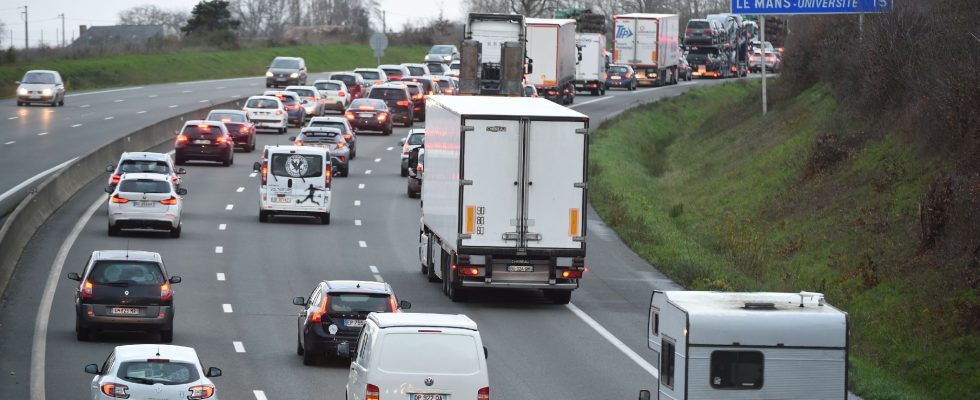The Minister of the Economy’s return to politics is busy with many trade-offs to make. After having rejected its appeal to distributors to sell fuel at a loss, it is the motorway companies and large airports which are up in arms against the new tax set up by Bruno Le Maire within the framework of of the 2024 budget. The one who, for several weeks, has been shouting haro in the face of a debt load which continues to increase, intends to draw from the drawers of “dealers”, such as motorways and airports.
And this could bring the State some 600 million euros per year, from next year. Enough to finance part of the “extremely high” and “imperative” investments in the energy transition.
It must be said that after removing 16 billion euros from the 2024 budget – unheard of in ten years – Bruno Le Maire is busy looking for the 7 billion more that Emmanuel Macron promised to finance ecological planning. In the eyes of the tenant of Bercy, “polluting transport infrastructures, whether road or air”, therefore appear to be the perfect candidates to contribute to this.
The compensation clause, the dealers’ joker
It didn’t take much for the dealership managers to step up to the plate. Rising taxes “inevitably” equate to an increase in toll rates, immediately asserts Pierre Coppey, president of Vinci Autoroutes, who “contests” a project “contrary to the letter and spirit of the concession contracts”. And pull out of his hat article 32 of the concession contract which stipulates that the creation of a tax or specific fee gives right to the establishment of tariff compensation measures. In other words, the contract which binds the State to the highway companies reserves the possibility for the concessionaires to compensate for the loss caused by a tax increase by increasing its prices.
A measure which, if we are to believe those mainly concerned, would ultimately penalize the French who must expect to see the price of tolls increase. This is firmly contested by the executive, who insists that “taxation of motorway concessionaires will not be reflected in tolls, which are fixed by contract and validated by the State”. And Bruno Le Maire prides himself on having consulted the Board of stateeven though the administrative judge gave an unfavorable opinion.
The introduction of a new tax targeted specifically at dealers “would present […] a high risk of being considered by the constitutional judge as carrying a manifestly disproportionate attack on the right to maintain legally concluded agreements”, warn the magistrates of the Royal Palace, referring to the famous compensation clause provided for in article 32 of the concession contract. Especially since the arguments of “general interest” invoked by the executive, the Board of state retorts that they will not be enough to neutralize the effects of the compensation clause, insofar as the tax “does not constitute a fiscal measure […] intended to discourage the use of a mode of transport that emits greenhouse gases.
Enlargement to airports: the government’s solution
Faced with multiple legal barriers, the executive had to show imagination. Rather than targeting only the “superprofits” of motorway concessionaires, the government has broadened its scope to “long-distance transport infrastructure”, bringing large airports into the tax fold. The airports of Paris (ADP), Nice and Marseille are in the viewfinder. Conversely, the smallest infrastructures whose operating income does not exceed 120 million euros, and whose average profitability remains less than 10%, should not be affected.
With this new tax, the executive therefore renounces the idea of a new tax on plane tickets. But if the government insists that no increase in the price of tolls will take place, the Minister of Transport nevertheless warns that the prices of plane tickets could still increase. While reserving “the possibility of legal recourse” like Vinci, the Aéroports de Paris (ADP) group plans to pass on to the airlines “around 75%” of the increase in costs linked to this tax by increasing the royalties “over two to three years”, from 2024. Bruno Le Maire is now responsible for establishing his authority, which, after the fiasco of selling gasoline at a loss, perhaps risks not to be an easy thing. One thing is certain: toll rates will increase like every year in February 2024 to take inflation into account.
